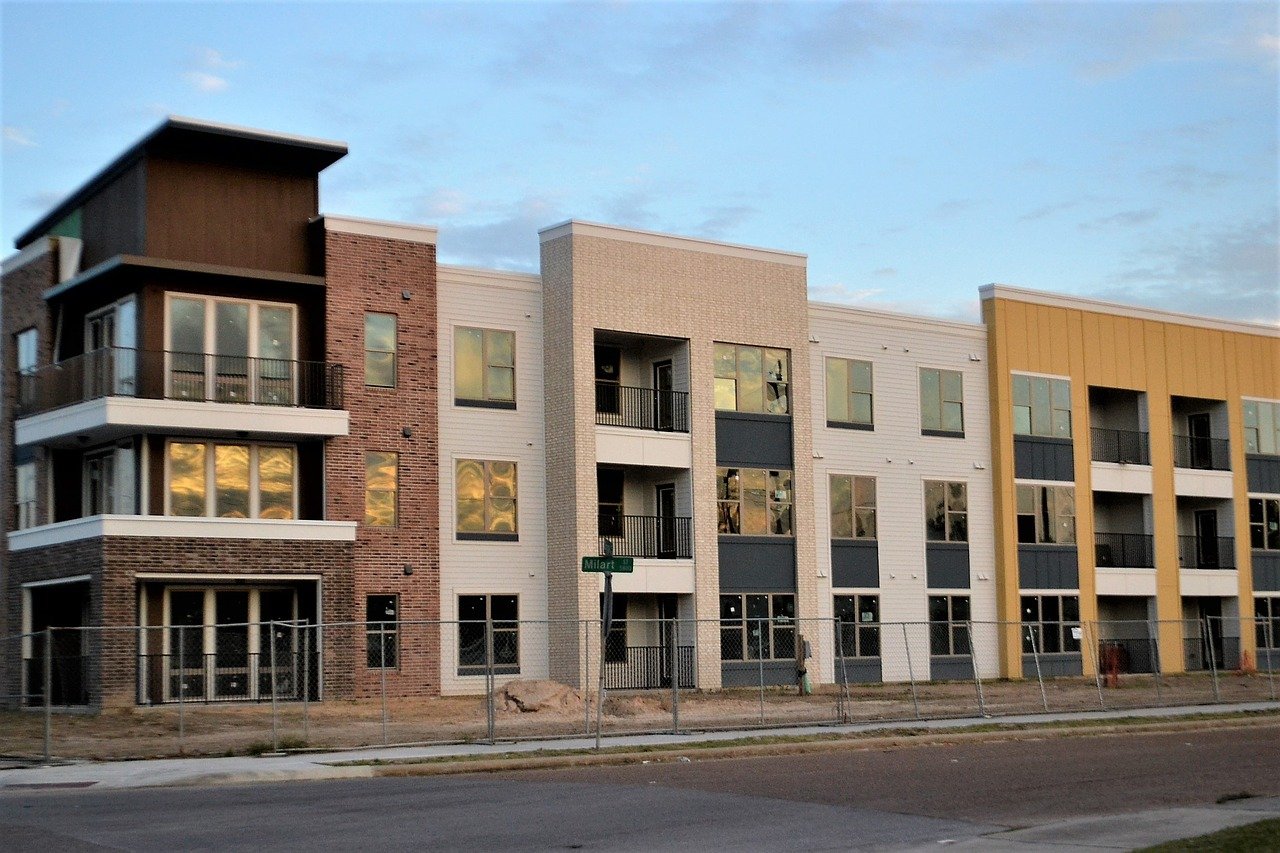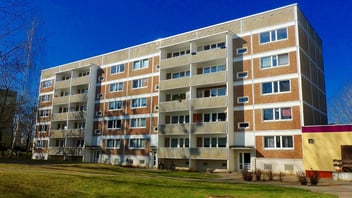-
Home
- Long Term Rental
- Real Estate Investing
- Small Balance Commercial
- Loans for Rental...
Loans for Rental Property: Guide to Borrowing for LTV


For many investors, the most cost-effective way to finance a real estate investment is to seek out loans for rental property. Which loan, however, will give the highest return on investment (ROI)?
In this article, we explain the types of loans for rental property available, their requirements, and the steps to make you the ideal borrower for your preferred lender.
Table of Contents:
- Best Way to Finance a Rental Property
- Types of Loans for Investment Property
- Investment Property Loan Requirements
- How to Finance Rental Property
Best Way to Finance a Rental Property
Financing a rental property can be a challenge but with the right lending partner, you'll be well on your way to establishing a successful track record as a real estate investor.
Consider the following to determine the best way to finance your specific rental property:
Loan Terms
Rental property loans typically have stricter terms and conditions than a loan for a primary residence. Non-owner-occupied properties have a higher risk of default; thus, higher rates to compensate for that risk.
When you’re seeking out loans for rental property from different lenders, consider the following:
- Length of the loan (in months or years)
- Interest rates and origination points
- Loan amount
- Prepayment penalty
By understanding the terms of your contract, you can easily reduce property costs. Shortening the loan period, for example, can save you money in the long run on interest rates.
Loan to Value (LTV)
Mortgage lenders use the loan-to-value (LTV) ratio to determine lending risk. The higher the LTV, the lower your initial down payment and out-of-pocket costs.
The industry standard for LTV is 80%. This means that a borrower can only get a mortgage if they have a 20% down payment, or have 20% equity in their home.
The LTV at Revolution Capital is 90%
The LTV ratio is calculated by dividing the value of a mortgage loan by the appraised value of the collateral property.
LTV = (Amount of loan) / (Appraised value of the property)
For example, if you're taking out $120,000 on a mortgage for a house that was appraised at $182,000, your LTV is 65%.
Down Payment
Unlike primary residences, rental properties generally have a higher minimum down payment requirement. The industry standard for rental properties is a 15% – 25% down payment, depending on whether you’re purchasing a one-unit or multiple units.
Revolution Capital Lending offers the best loans for rental properties with only a 10% down payment
Types of Loans for Investment Property
As we mentioned earlier, rental properties can yield higher revenue if you choose the right investment property loans for your project. We’ve described the types of loans for rental property and financing options below.
- Private funding for rental property: Private funding, sometimes called hard money loans, is the process of raising money through private investors, who are often companies or individuals. Traditional private lenders offer 80% LTV with 20% down, however, at Revolution, we offer 90% LTV with only a 10% down payment.
Best for: Investors with existing collateral and projects with high-profit margins.
- Term Rentals: Term rental loans are a long-term rental financing option with 30-year loan terms. Generally, these are non-owner-occupied rental loans and can be financed for up to 80% of the property’s as-is value. The cap rate for these loans is determined by the type of tenant, rated vs. non-rated, and corporate vs. finance.
Best for: Investors with rent-ready properties and no external income.
- Small balance commercial loans: Small balance commercial loans (SBC) loans offer funding for multi-family properties and mixed-use properties. These loans offer a shorter underwriting period and rates starting at 8.49%.
Best for: Investors with stabilized properties.
- Conventional loans for rental property: Conventional mortgages are typically secured through credit unions, banks, and other mortgage companies. Generally, investors can expect a slower approval process and underwriting than their privately funded counterparts. Oftentimes, debt to income ratio (DTI), credit score, and verifiable income requirements are more strict for these types of loans.
Best for: Investors with a significant financial cushion and previous experience.
- Agency Loans: Government-sponsored enterprises, such as Fannie Mae and Freddie Mac, provide agency loans for both residential and commercial properties. Freddie Mac’s program requirements include no more than 10 one – four SFR properties, a minimum credit score of 720, and a fixed-rate, level payment mortgage. Additionally, investors may not be affiliated with the builder, developer, or property seller.
Best for: Investors with very few low-risk properties.
Lorem ispum dolor sit umit

Lorem ipsum dolor sit amet, consectetur adipiscing elit. Proin interdum dolor a ullamcorper molestie. Vivamus in justo velit. Aliquam vehicula massa et venenatis placerat.
Subtitle in the post
Adipiscing elit. Proin interdum dolor a ullamcorper molestie. Vivamus in justo velit. Aliquam vehicula massa et venenatis placerat. In hac habitasse platea dictumst. Maecenas scelerisque ipsum et mauris aliquam, eget rhoncus enim facilisis. Praesent tincidunt vehicula ante, sed tempus libero vulputate at. Proin sed erat neque. Vivamus faucibus magna at facilisis suscipit.
- Taesent tincidunt vehicula ante, sed tempus libero vulputate.
- Lorem ipsum dolor sit amet, consectetur adipiscing elit.
- Taesent tincidunt vehicula ante, sed tempus libero vulputate.
- Lorem ipsum dolor sit amet, consectetur adipiscing elit.

Lorem ipsum dolor sit amet, consectetur adipiscing elit. Proin interdum dolor a ullamcorper molestie. Vivamus in justo velit. Aliquam vehicula massa et venenatis placerat.

Lorem ipsum dolor sit amet, consectetur adipiscing elit. Proin interdum dolor a ullamcorper molestie. Vivamus in justo velit. Aliquam vehicula massa et venenatis placerat.
Investment Property Loans vs. Primary Residence
A primary residence is a property that you live in full-time (or at least six months out of the year). Examples include your house, condo, townhome, mobile home, or boat. Investment properties are financed with the intention to generate profit.
Taesent tincidunt
vehicula ante, sed tempus libero vulputate.
Taesent tincidunt
vehicula ante, sed tempus libero vulputate.
Taesent tincidunt
vehicula ante, sed tempus libero vulputate.
Taesent tincidunt
vehicula ante, sed tempus libero vulputate.

Key Takeaways
Adipiscing elit. Proin interdum dolor a ullamcorper molestie. Vivamus in justo velit. Aliquam vehicula massa et venenatis placerat. In hac habitasse platea dictumst. Maecenas scelerisque ipsum et mauris aliquam, eget rhoncus enim facilisis. Praesent tincidunt vehicula ante, sed tempus libero vulputate at. Proin sed erat neque. Vivamus faucibus magna at facilisis suscipit.
- Taesent tincidunt vehicula ante, sed tempus libero vulputate.
- Lorem ipsum dolor sit amet, consectetur adipiscing elit.
- Lorem ipsum dolor sit amet, consectetur adipiscing elit.
- Taesent tincidunt vehicula ante, sed tempus libero vulputate.

Proin interdum dolor a ullamcorper molestie. Vivamus in justo velit. Aliquam vehicula massa et venenatis placerat. In hac habitasse platea dictumst. Maecenas scelerisque ipsum et mauris aliquam, eget rhoncus enim facilisis. Praesent tincidunt vehicula ante, sed tempus libero vulputate at. Proin sed erat neque.”

Proin interdum dolor a ullamcorper molestie. Vivamus in justo velit. Aliquam vehicula massa et venenatis placerat. In hac habitasse platea dictumst. Maecenas scelerisque ipsum et mauris aliquam, eget rhoncus enim facilisis. Praesent tincidunt vehicula ante, sed tempus libero vulputate at. Proin sed erat neque.”
Daniel William
Co-Foundet Acme Corp
Subtitle in the post
| Investment Property Loans | Primary Residence Loans |
|---|---|
| LTV: A maximum LTV of 90% |
LTV: A maximum LTV of 75% |
| Down payment: A down payment of at least 10% | Down payment: A down payment of at least 3% (PMI required) |
| Interest Rates: 1% – 3% higher than primary residence loans | Interest Rates: Between 3% – 6% |
| Requirements: Generally, less strict income and credit requirements with an exit strategy and collateral | Requirements: Typically, a credit score of at least 620, verifiable income, and a max DTI of 43% |
Investment Property Loan Requirements
Requirements for investment properties vary by lender and property type, but may include 10% down payment, origination fee, an exit strategy, business plan, collateral, and property requirements.
| Types of Loans for Rental Property | Loan Requirements |
| Private Funding |
|
| Term Rentals |
|
| Small Balance Commercial Loans |
|
| Conventional Loans |
|
| Agency Loans |
|
How to Finance Rental Property
The steps to secure loans for rental property vary by state, property, and lender. To finance your rental property, find a reliable lender, evaluate your investment strategy, get pre-approved before you close on your loan, and create a favorable repayment plan.
- Step 1: Find a reliable lender: Find a lending partner that understands the speed needed to fund your loan with perspectives to help improve your bottom line. Revolution has funded over $1 billion in direct capital loans with a combined over 40 years of experience.
- Step 2: Evaluate your investment strategy: Lenders will consider your available liquid assets, successes with investments in the past 36 months, and factors for financial approval. The better your strategy and track record, the better loan terms you’ll receive.
- Step 3: Get pre-approved: As an investor, speed to market is crucial for turning a profit. The faster your pre-approval, the faster your closing will be and access to funds. At Revolution, we offer a 24-hour pre-approval process.
- Step 4: Close on your loan: Once you have a property selected, an offer, and the preapproval letter, you can submit the purchase agreement to complete the mortgage application. While conventional mortgages take up to three months to close Revolution offers 10 – 20 days to close.
- Step 5: Create a repayment plan: Because the nature of loans for rental properties is riskier for non-owner-occupied properties, interest rates are higher than mortgages for primary residences. Strategizing a repayment plan to quickly pay off your loan means less revenue going to your interest payment.
The best type of loans for rental property will depend on the property type, your existing reserves and experience, and your lender. Whether you’re just starting in real estate investment or you’re an experienced professional, our team is here to help you take your business to the next level.

Lorem ipsum dolor sit amet, consectetur adipiscing elit. Proin interdum dolor a ullamcorper molestie. Vivamus in justo velit. Aliquam vehicula massa et venenatis placerat.



